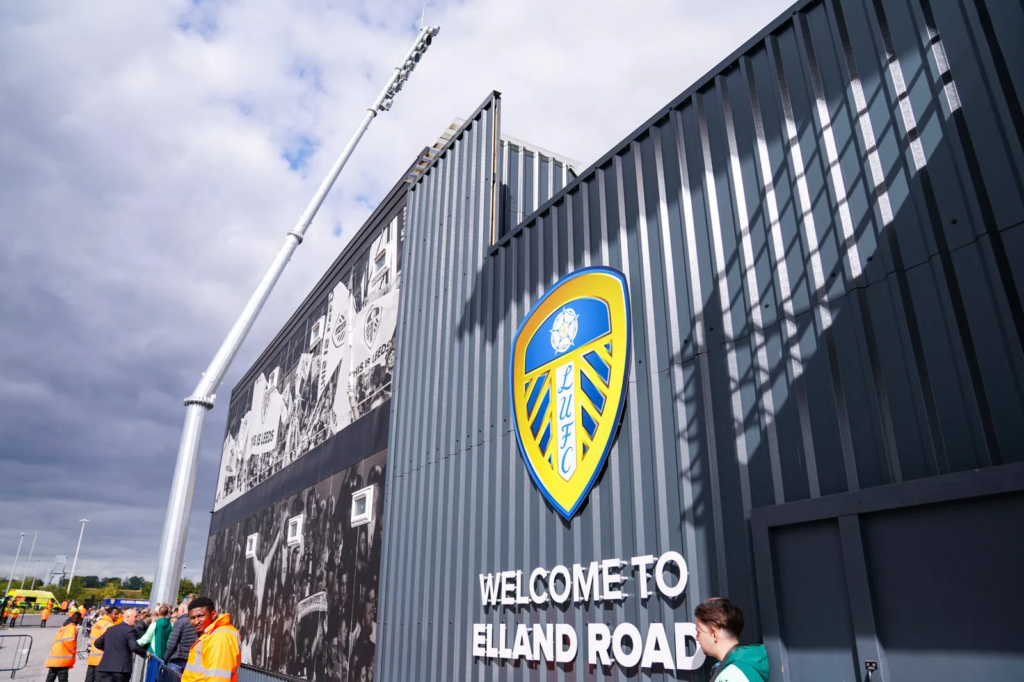Leeds United, a historic football club based in West Yorkshire, England, has a dedicated fan base and a rich legacy within English football. Many supporters and investors alike are interested in the possibility of purchasing shares in the club, either to gain a financial stake or simply to express their loyalty and support.
When considering buying shares in Leeds United, it is important to understand the club’s ownership structure and any available opportunities for investment. Historically, football clubs can offer shares to the public, either directly or through the stock market, but the availability and accessibility of such shares can vary significantly.
Understanding these dynamics will provide greater insight into the potential for becoming a shareholder in this iconic football institution.
Challenges in Buying Shares

Limited Availability of Shares
One of the primary challenges for those interested in purchasing shares in Leeds United is the limited availability of shares. As the club is not currently listed on the London Stock Exchange, shares are not openly traded on public markets, restricting potential investors’ ability to easily buy and sell stakes.
This situation means that any transactions involving shares are generally private and may require negotiation with existing stakeholders, such as major shareholders like 49ers Enterprises. The limited availability not only makes it difficult for individual investors but also limits the liquidity and dynamic pricing that public trading would facilitate.
Lack of Active Trading
In addition to limited availability, the lack of active trading further complicates the process for investors seeking to acquire shares in Leeds United. As the club is privately held, there’s an absence of regular share trading, which typically occurs on stock exchanges.
This scarcity of transactions results in a lack of real-time pricing and valuation updates, making it challenging for potential shareholders to assess the true market value of their investment. The stagnant nature of share trading in privately held clubs like Leeds United often leads to increased risk, as investors have less visibility on the financial health and valuation trends that would typically inform a public market investment strategy.
Can You Buy Shares in Leeds United: Steps to Acquire Shares

1. Opening an Account with a Stock Trading Service
The first step towards acquiring shares in Leeds United or any football club is to open an account with a reputable stock trading service. Although Leeds United is not currently listed on the London Stock Exchange, setting up a trading account puts investors in a position to act swiftly should a public listing occur.
When choosing a trading service, it’s advisable to look for platforms that offer a range of international equities and have robust security measures in place to protect your financial information.
2. Funding the Account
Once the account is set up, the next step is to fund it. This involves transferring money from your bank account into your trading account. Be sure that the amount you deposit aligns with your investment goals and risk tolerance.
It’s important to note that even if Leeds United offers shares in the future, having readily available funds will allow you to respond promptly to market opportunities as they arise.
3. Creating a Buy Order for LUFC Shares
In the event that Leeds United becomes publicly listed, investors would need to create a buy order for LUFC shares. This involves specifying the number of shares you wish to purchase and the price you are willing to pay.
It’s crucial to stay informed about any announcements regarding a public offering and to act quickly, as football club shares can attract significant interest from both fans and investors, potentially influencing their market value.
4. Contacting Current Shareholders Through Companies House
For those looking for immediate engagement, contacting current shareholders directly can be an alternative path. Companies House is a valuable resource that provides public access to company filings and shareholder information in the UK.
By researching existing stakeholders like major shareholders, investors can explore the possibility of private negotiations to purchase shares. Establishing direct communication with current shareholders may reveal opportunities that are not available through the public market, particularly in the absence of active trading.
Investment Process: Steps to Buy Shares in Leeds United and Their Comparison with Other Football Clubs

Leeds United’s Investment Process
The investment process for acquiring shares in Leeds United remains distinct due to its current status as a privately held club, unlike some of its counterparts that have publicly listed shares. As described earlier, potential investors must be acquainted with private negotiations or await any potential public offering, which would significantly shift the investment landscape.
Setting up a stock trading account and funding it remains essential. However, direct approaches through platforms like Companies House may present immediate, albeit constrained, opportunities for those determined to engage with existing shareholders.
Comparison with Other Football Clubs
When comparing Leeds United with publicly traded football clubs like Manchester United, Borussia Dortmund, or Juventus, the path to ownership is markedly different. For these clubs, shares are easily accessible to the general public, allowing investors to participate in the market without the complex negotiations required by privately held clubs.
The existence of an active trading market for clubs that are publicly listed offers real-time pricing, liquidity, and a lower entry barrier for investors compared to the negotiation-heavy process associated with a club like Leeds United. This also introduces more conventional investment strategies and market analysis methods which can benefit and inform prospective shareholders in their decision-making processes.
Leeds United’s Approach to Ownership

Current Ownership Structure
Leeds United’s current ownership structure is characterized by a combination of private and corporate stakeholders, which influences the club’s business and strategic decisions. As of now, the majority ownership rests with a select group of investors, who steer the club’s direction based on agreed-upon objectives and performance metrics.
This model has allowed for focused investment strategies and coherent operational management. However, it remains a topic of discussion among fans who are eager for more inclusive ownership methodologies that might offer them a voice in how their beloved club is governed.
Efforts to Involve Fans in Ownership
Recognizing the importance of its passionate fanbase, Leeds United has expressed a commitment to enhancing supporter engagement in its organizational framework. The club has explored various initiatives designed to bridge the gap between traditional ownership models and fan participation.
One such effort involves incrementally incorporating fan representatives into decision-making processes, potentially through advisory roles or fan councils. These initiatives aim to reflect the values and aspirations of supporters, ensuring that their perspectives contribute to the club’s development and community relations.
By exploring these participatory structures, Leeds United not only strengthens its connection with fans but also aspires to foster a more united and inclusive future.
Potential Benefits of Increased Fan Ownership

Despite these challenges, there are significant opportunities associated with the prospect of increased fan ownership in football clubs. Fan ownership can democratize the governance of clubs, allowing for a more transparent and inclusive decision-making process that aligns the club’s operations with the interests of its supporters.
This type of ownership structure can foster a stronger community bond, as fans have a personal stake in the success and direction of the club. Furthermore, increased fan ownership can lead to sustainable growth, as decisions are often made with a long-term perspective in mind, prioritizing the club’s legacy and cultural significance.
By empowering fans, clubs may also unlock innovative ways to generate revenue, through dynamic fan engagement strategies and community-centered initiatives, ultimately boosting both financial stability and social capital.
Steps for Fans: How Fans Can Attempt to Buy Shares
- Research the Club’s Ownership Structure: Understanding the current ownership dynamics of the club is crucial before making any investment decision. Fans should start by researching the percentage of shares available to the public, the types of shares issued, and any existing restrictions or guidelines related to ownership.
- Monitor Public Announcements and Market Activity: Stay informed about any official announcements or changes in the club’s strategic direction concerning share distribution. Keeping an eye on news releases, investor updates, and market activity will provide fans with the latest information on available opportunities.
- Engage with Supporters’ Trusts or Fans’ Groups: Often, supporters’ trusts or registered fans’ groups can be integral in facilitating or advocating for fan ownership. Joining these organizations can provide valuable insights, collective bargaining power, and sometimes direct access to share purchasing pathways.
- Consult with Financial Advisors: Due to the complexities involved in investing, consulting with financial advisors who have experience in sports ownership can be beneficial. They can provide guidance on investment strategies, risk assessment, and the processes involved in purchasing ownership stakes in football clubs.
- Attend Club Meetings and Networking Events: Participate in official club meetings, fan forums, or networking events to build relationships and engage with key stakeholders. These gatherings can be gateways to understanding more about the club’s financial performance and potential entry points for investors.
- Explore Community Investment Schemes: Some clubs may offer community-focused investment schemes or fan share-distribution initiatives. Investigating these programs can uncover opportunities tailored for fan participation, promoting a more inclusive way for supporters to become shareholders.
- Prepare Financial Resources: Once an opportunity to buy shares arises, having prepared financial resources will enable swift action. Fans should ensure they have the necessary capital and documentation in place to make a timely and informed investment decision.
Conclusion
The movement towards increased fan ownership of football clubs, such as Leeds United, presents both challenges and opportunities. Despite obstacles like complex legal requirements and the exclusivity of private ownership, fan involvement in ownership structures promises a more transparent and community-focused club governance.
Fans with a stake in the club can align operations with supporter interests, fostering sustainable growth and a stronger community bond.
For more Interesting Articles, follow us on Facebook or join our brand new WhatsApp Channel for instant updates directly to your phone.
Discover more from Leeds United News
Subscribe to get the latest posts sent to your email.

